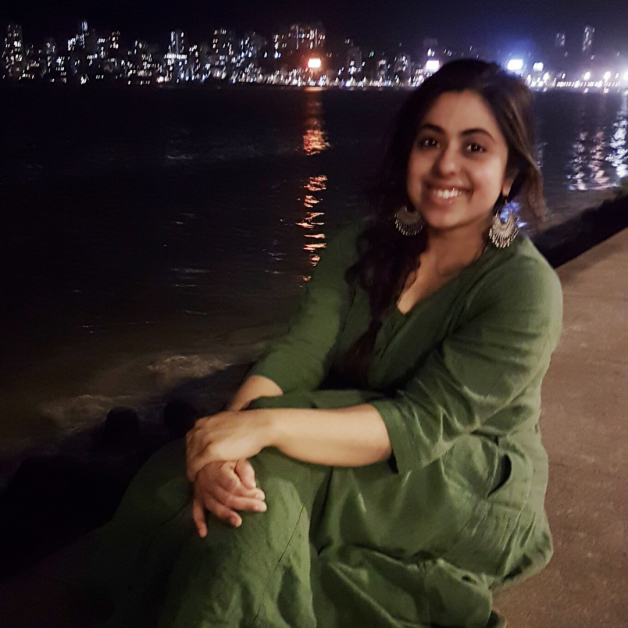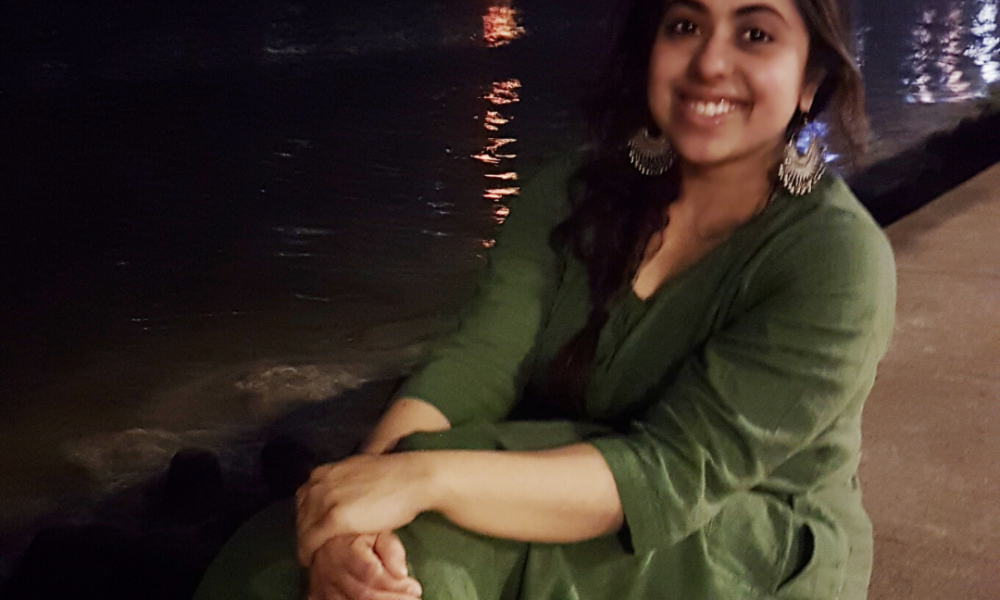Malavika is an International Student from India studying her Master’s Degree in the UK. This is challenging enough, but figuring out what is safe to eat in another country and a different language is a whole other level.
With allergies to peanuts, mustard, citric fruit and shellfish, Malavika shares her story with us:

1. How did you find out about your allergies and when were you diagnosed?
As a baby I had some allergies which kept me away from chocolates amongst other things, which was hard when I was little. I would get rashes on my cheeks and the folds of my hands. But as I grew up it slowly went away only to make a re-entry when I was turning 15. It had affected my thumb with severe rashes to the point I would bleed. It was so sore, truly a nightmare. I got an allergy patch test done and began avoiding everything I could to figure out what triggered the rashes.
2. What is the biggest misunderstanding someone had about your allergy?
People often tend to believe that allergies are not a serious condition and you could just get your body used to what ever you are allergic too. Not true! The more people that understand the seriousness of this, the better.
3. What’s the most annoying thing that people say about your allergies?
What annoys me most is when people feel that I am using my allergy as an excuse for disliking a certain food. They would keep encouraging me to try these foods assuring me I would like it. I love shellfish but I can’t have it and I wish people would just get that.
4. What has been your best free-from-find?
Luckily I am not allergic to daily items like gluten and lactose, so don’t actually use many alternatives, and prefer to cook from scratch so I can control what is in my food. There are some occasions though where I replace peanuts with almonds since I am allergic to peanuts.
Check out Malavika’s Rajma Curry here.
5. What is your favourite indulgence food & recipe?
I really enjoy my rice and fish curry! Other than that, I enjoy hot wings, pizza, and burgers. Just the regular not so healthy food.
6. What top tips have you got for someone starting out on an allergy free diet?
The main idea is to avoid whatever that is a trigger but at the same time really enjoying your food. If not, you will constantly be complaining about losing out in life and its very important to know that stress and mood affects the skin a lot. For a person with allergies this is especially important that one realises how important it is to look after your mental health as it can impact the severity of your symptoms, and has impacted my skin especially while completing my degree during Covid-19. So make sure you look after yourself physically and mentally.
LiberEat’s content is not intended to be a substitute for professional medical advice. You should always take precautions and use appropriate judgement to protect yourself and others under your care with regard to food allergies.
Food allergen rules and regulations continue to change and evolve. Food businesses in production, hospitality, catering, and retail must be vigilant when working with ingredients, products, and dishes containing allergens and exercise due diligence when providing ingredient and allergen information to consumers. Successful allergen management is a big part of food safety professionals’ creating a culture of care and excellence within their teams.
LiberEat offers a second line of defence for food businesses by detecting errors, allergens, and other harmful ingredients with our proprietary Allergen Error Detection Technology. Food businesses can apply this technology directly to identify errors in allergen communications, preventing the risk of injury to consumers 24/7, 365 days of the year so that errors are detected, diagnosed and rectified quickly. We know this helps you protect your brand reputation and enhance customer trust in your brand.
Contact us today to learn more about how we can support your existing food safety processes.

